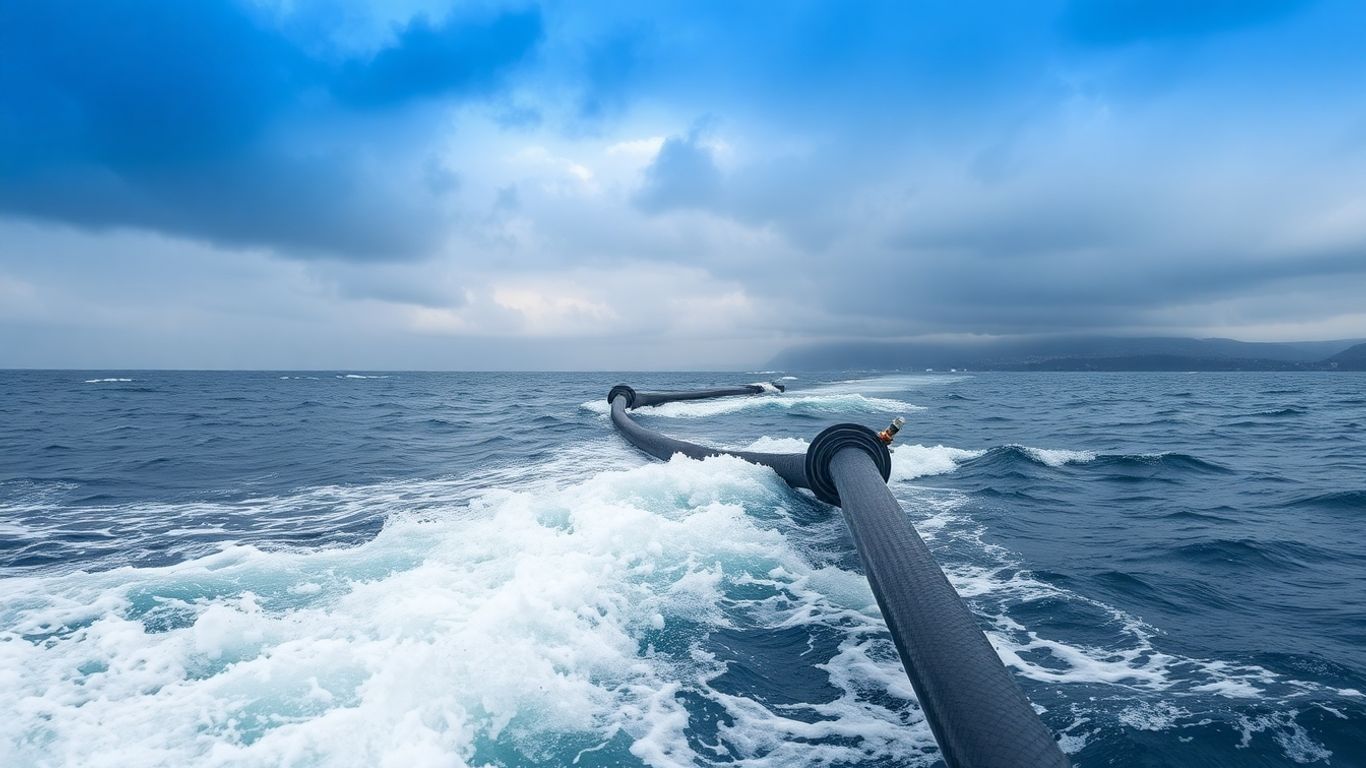The ambitious Great Sea Interconnector (GSI) project, a €2 billion subsea power cable aiming to link Greece, Cyprus, and Israel, is facing significant obstacles. Launched with great promise in October 2022, the project’s completion by the end of 2023 is now uncertain due to technical difficulties, escalating costs, geopolitical tensions, and a European Public Prosecutor’s Office investigation into potential criminal offenses.
Key Takeaways
- The Great Sea Interconnector (GSI) project, valued at €2 billion, aims to connect Greece, Cyprus, and Israel via a subsea power cable.
- Its primary goals are to integrate Cyprus into the European electricity transmission system and enhance energy security for Greece and Cyprus.
- The project faces significant challenges including high costs, technical complexity, geopolitical instability in the Eastern Mediterranean, and an ongoing EPPO investigation.
- Turkey’s objections and Cyprus’s recent financial reservations have further stalled progress.
Project’s Strategic Importance and Initial Ambitions
The GSI project, envisioned as a 1,208-kilometer-long power cable, was designed to be one of the deepest and longest submarine power cables globally. It sought to integrate Cyprus into the European electricity transmission system and link energy markets between the EU and Asia. The European Union had pledged substantial financial support, committing over €650 million to the €2 billion initiative.
Geopolitical Tensions and Maritime Border Disputes
The Eastern Mediterranean region is characterized by complex geopolitical dynamics, including ongoing conflicts and unresolved maritime border issues. Tensions between Greece and Turkey, both NATO members, and the unresolved status of Cyprus, with its northern part occupied by Turkey, create a challenging environment for major international infrastructure projects. Unclear maritime borders and exclusive economic zones, particularly concerning agreements between Turkey, Libya, and Greece, further complicate the necessary surveys for laying the subsea cable. Turkey’s assertion that it must be consulted on activities in certain waters has already halted progress on crucial surveys.
Financial Reservations and Internal Disagreements
Adding to the project’s woes, Cyprus has recently expressed reservations about its financial viability. The Cypriot Finance Minister stated that independent studies suggest the project is not profitable under current circumstances, casting doubt on Cyprus’s financial contribution. This stance caught the Greek government by surprise, with Greece’s Foreign Minister suggesting that Cyprus might be protecting its own energy market interests. While the Greek Prime Minister remains committed to the project, emphasizing its benefits for Cyprus and the EU’s financial backing, a concrete commitment from Nicosia is still pending.
European Investigation Adds Another Layer of Uncertainty
The project’s future is further clouded by an investigation launched by the European Public Prosecutor’s Office (EPPO) into possible criminal offenses. The EPPO is reportedly focusing on the period before the project was transferred from the Cypriot company EuroAsia Interconnector to the Greek grid operator ADMIE. The investigation is said to involve high-ranking political figures, their families, and civil servants from both the European Commission and Cyprus, adding a significant layer of legal and financial uncertainty to the GSI’s already precarious situation.






